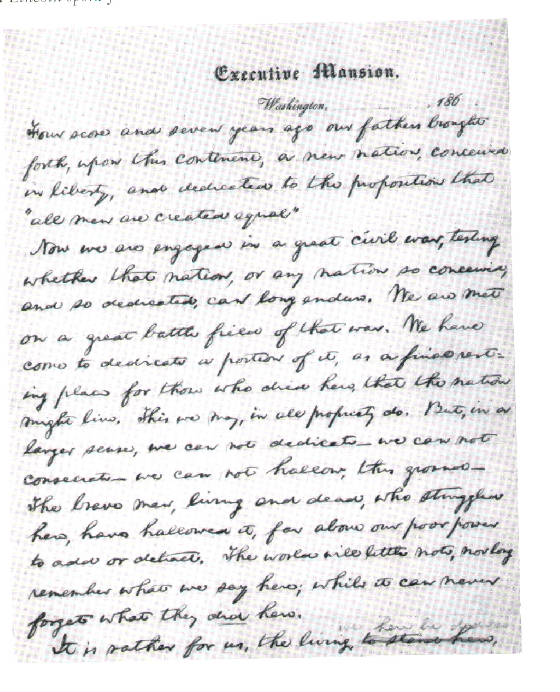|
|
This three paragraph section of text is taken word for word from the weblink to a terrific site called ourdocuments.gov. This is a superior site. http://www.ourdocuments.gov/doc.php?doc=36 At the end of the Battle of Gettysburg, more than 51,000 Confederate and Union soldiers were wounded, missing, or dead. Many of those who died were laid in makeshift graves along the battlefield. Pennsylvania Governor Andrew Curtin commissioned David Wills, an attorney, to purchase land for a proper burial site for the deceased Union soldiers. Wills acquired 17 acres for the cemetery, which was planned and designed by landscape architect William Saunders. The cemetery was dedicated on November 19, 1863. The main speaker for the event was Edward Everett, one of the nation’s foremost orators. President Lincoln was also invited to speak “as Chief Executive of the nation, formally [to] set apart these grounds to their sacred use by a few appropriate remarks.” At the ceremony, Everett spoke for more than 2 hours; Lincoln spoke for 2 minutes. President Lincoln had given his brief speech a lot of thought. He saw meaning in the fact that the Union victory at Gettysburg coincided with the nation’s birthday; but rather than focus on the specific battle in his remarks, he wanted to present a broad statement about the larger significance of the war. He invoked the Declaration of Independence, and its principles of liberty and equality, and he spoke of “a new birth of freedom” for the nation. In his brief address, he continued to reshape the aims of the war for the American people—transforming it from a war for Union to a war for Union and freedom. Although Lincoln expressed disappointment in the speech initially, it has come to be regarded as one of the most elegant and eloquent speeches in U.S. history.
|
||||||||||||||

